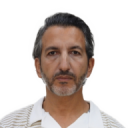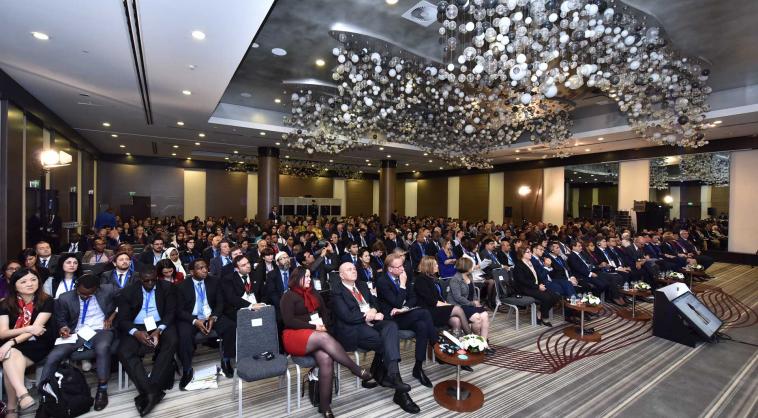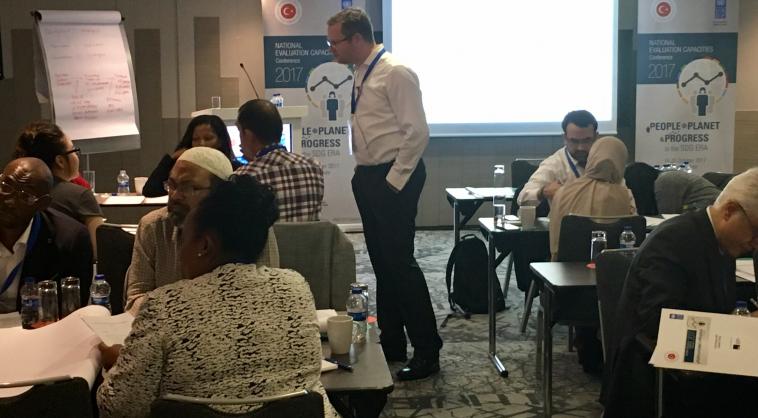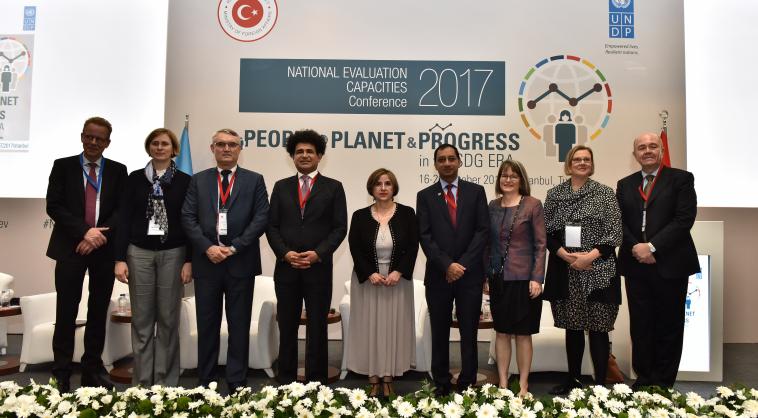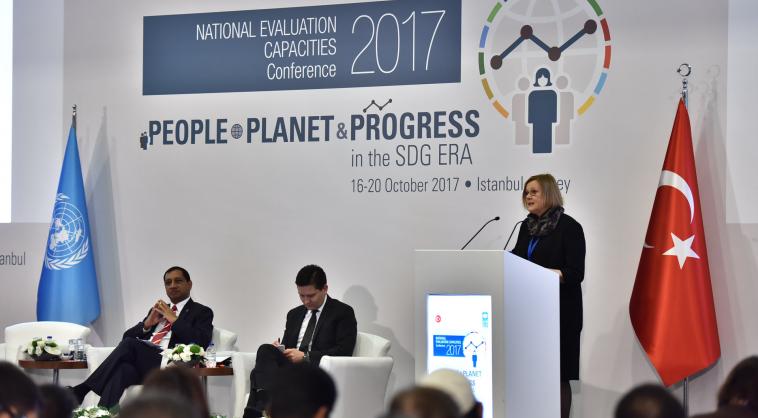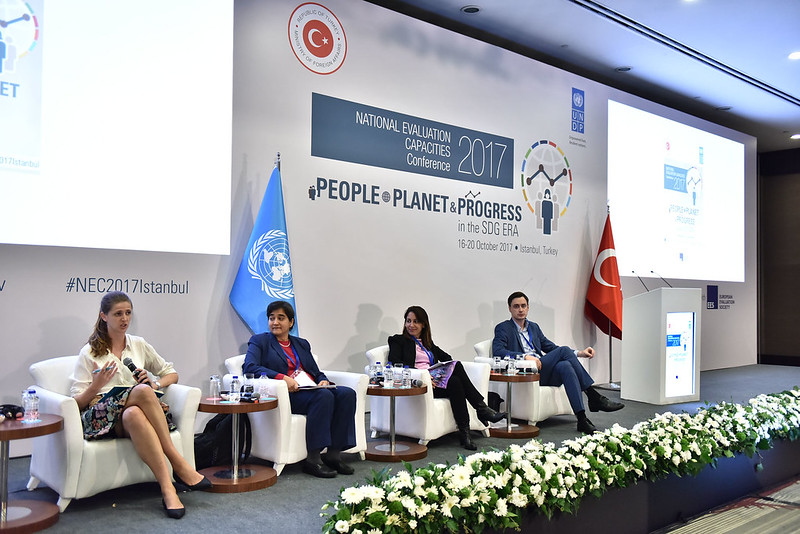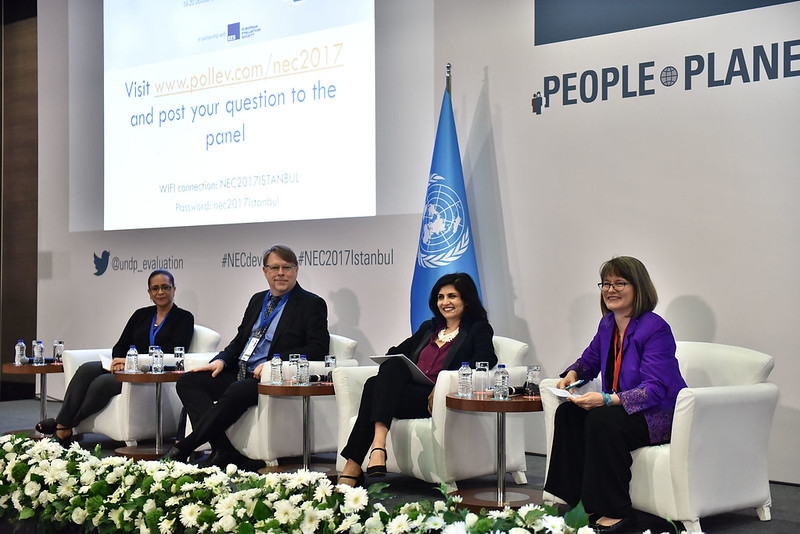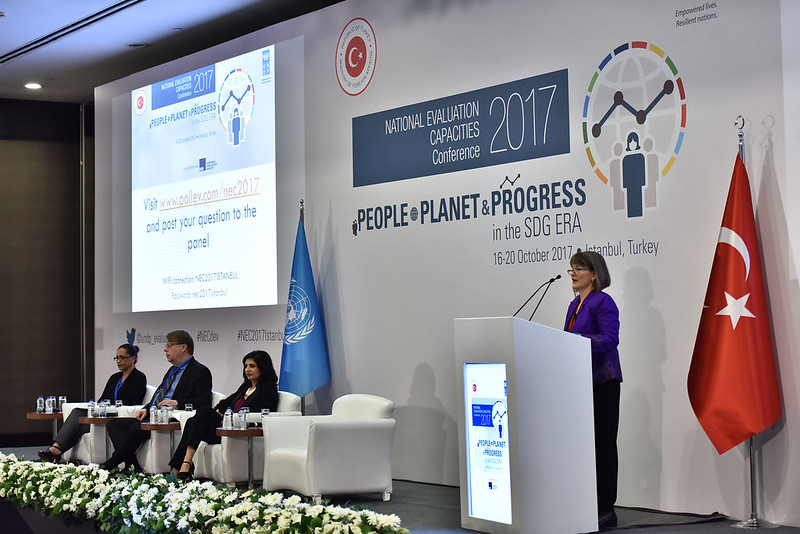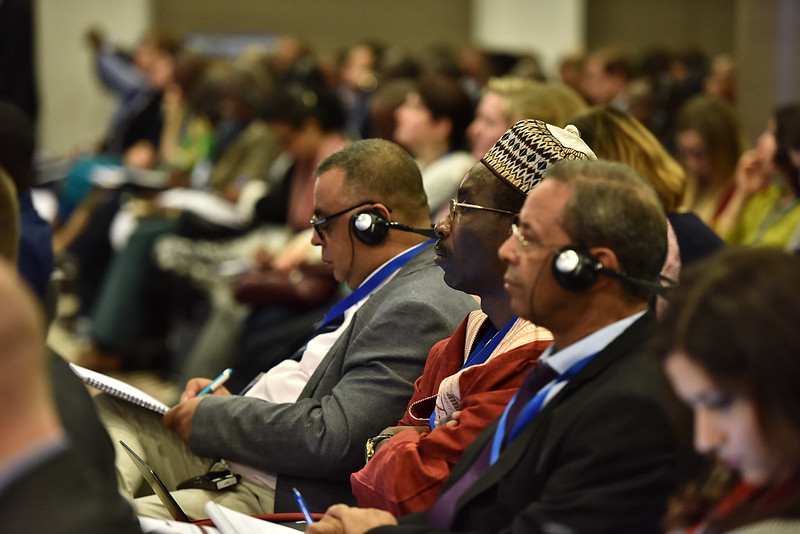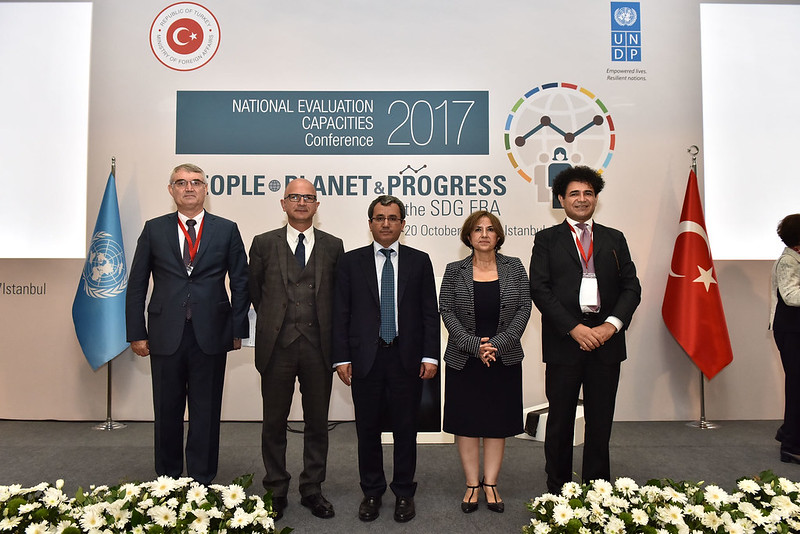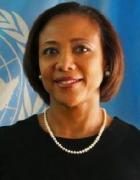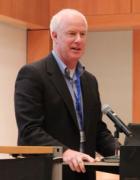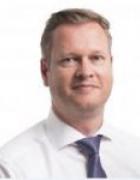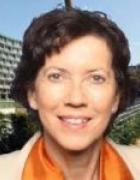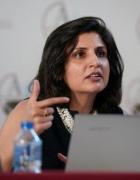NEC 2017: PEOPLE, PLANET AND PROGRESS IN THE SDG ERA
Moderator: Rastislav Vrbensky, Deputy Assistant Administrator and Deputy Director, Regional Bureau for Europe and the Commonwealth of Independent States, UNDP
Speakers:
Indran Naidoo, Director, Independent Evaluation Office, UNDP
Riitta Oksanen, Deputy Director General, Department for Development Policy, Ministry for Foreign Affairs, Finland and President, European Evaluation Society
SESSION 4: COUNTRY-LED EVALUATION IN THE ERA OF THE SUSTAINABLE DEVELOPMENT GOALS: GUIDANCE NOTE AND ON-LINE ASSESSMENT TOOL
Moderator: Arild Hauge, Deputy Director, Independent Evaluation Office, UNDP
Speakers:
- Vijayalakshmi Vadivelu, Evaluation Advisor, Independent Evaluation Office, UNDP
- Per Øyvind Bastøe, Director, Evaluation Department, Norwegian Agency for Development Cooperation and Chair, OECD Development Assistance Committee (DAC)
- Nina Sarishvili, Head of Service, Policy Planning and Strategic Coordination, Administration of the Government of Georgia
- Mohd. Monirul Islam, Deputy Chief, General Economics Division, Planning Commission, Bangladesh
- Iye Moakofi, Principal District Plans Coordinator, Ministry of Local Government & Rural Development, Botswana
- Timothy Lubanga, Commissioner of Monitoring & Evaluation, Office of the Prime Minister, Uganda
SESSION 5: EVALUATING PROGRESS IN SDG16: EFFECTIVE GOVERNANCE AND SUSTAINING PEACE
Moderator: Shelley Inglis, Regional Cluster Leader, Governance and Peacebuilding, Regional Centre for Europe and the Commonwealth of Independent States, UNDP
Speakers:
- Dmitri Belan, Research Officer, Moldova Social Innovation Hub (MiLab), UNDP
- Edward K. Mulbah, Executive Director, Peacebuilding Office, Ministry of Internal Affairs, Liberia
- Elnura Omurkulova-Ozierska,Researcher, National Strategic Studies Institute in Kyrgyzstan
- Alexandra Wilde, Advisor, Oslo Governance Centre, UNDP
SESSION 6: SDG INDICATOR FRAMEWORK, DATA AND EVALUATION: GLOBAL, REGIONAL AND NATIONAL FOLLOW-UP AND REVIEW PROCESSES.
Moderator: Paulo Jannuzzi, Professor, National School of Statistical Sciences, Brazilian Institute of Geography and Statistics, Brazil
Speakers:
- Yongyi Min, Chief, SDG Monitoring Unit, Statistics Division, United Nations Department of Economic and Social Affairs
- Phindile Masango, Economist, Ministry of Economic Planning and Development, Swaziland
- Entela Lako, Programme Specialist, UNDP Albania
SESSION 7: PARTNERSHIPS FOR EVIDENCE-BASED POLICY
Moderator: Irena Vojackova-Sollorano, United Nations Resident Coordinator and UNDP Resident Representative in Turkey
Speakers:
- Prudence Kaoma, Assistant Director, Research and Evaluation, Ministry of National Development Planning, Zambia
- John Njovu, Honorary Member, Monitoring and Evaluation Association (ZaMEA), Zambia
- Jennifer Mutua, Chair, Evaluation Society of Kenya
- Tomasz Kupiec, Researcher, Evaluation for Government Organizations (EGO), Poland
SESSION 8: THE EVALUATION HAS BEEN COMPLETED – NOW WHAT?
Moderator: Karla Hershey, United Nations Resident Coordinator and UNDP Resident Representative in Serbia
Speakers:
- Gerd Trogemann, Manager, Istanbul Regional Hub, UNDP
- Toily Kurbanov, Deputy Executive Coordinator, United Nations Volunteers programme (UNV)
- Sasha Jahic, Communications Specialist, Independent Evaluation Office, UNDP
- Clair Grant-Salmon, Head of Audience Development, International Institute for Environment and Development (IIED)
SESSION 9: MULTIPLE DIMENSIONS AND MULTIPLE STAKEHOLDERS: INNOVATIONS IN MONITORING AND EVALUATION FOR THE SDGs
Moderator: Gonzalo Guerra, Regional Adviser on Monitoring and Planning, Regional Hub for Latin America and the Caribbean UNDP
Speakers:
- Marco Vinicio Espinal Martínez, Monitoring and Evaluation Specialist, National Competitiveness Council, Dominican Republic
- Amos Misomali, Resident Advisor, Johns Hopkins University, Malawi
DEALING WITH COMPLEXITY IN AN INCREASINGLY INTERCONNECTED WORLD: RETHINKING THE DAC CRITERIA
Moderator: Caroline Heider, Director General, Independent Evaluation Group, World Bank
Panellists:
- Susanne Frueh, Director, Internal Oversight Service, United Nations Educational, Scientific and Cultural Organization (UNESCO) and Chair, United Nations Evaluation Group
- Per Øyvind Bastøe, Director, Evaluation Department, Norwegian Agency for Development Cooperation and Chair, OECD Development Assistance Committee (DAC)
- Riitta Oksanen, Senior Advisor, Development Evaluation, Ministry for Foreign Affairs, Finland and President, European Evaluation Society
- Indran Naidoo, Director, Independent Evaluation Office, UNDP and Vice Chair, United Nations Evaluation Group
SESSION 10: SDGs AND THE PRIVATE SECTOR: HOW ARE COMPANIES MEASURING THEIR CONTRIBUTIONS TO DEVELOPMENT?
Moderator: Marcos Neto, Director, UNDP, Istanbul International Center for Private Sector in Development
Speakers:
- Prateek Ahuja, Regional Manager, Medtronic, India
- Asher Hasan, Founder & CEO, Naya Jeevan, Pakistan
- Gonca Ongan, Managing Director, Koç University Social Impact Forum, Turkey
- Tomohiro Nagasaki, Impact Team Lead, Business Call to Action
SESSION 11: MISSING THE FORESTS FOR THE TREES? WHAT ARE GLOBAL EVALUATIONS OF FORESTRY PROGRAMMES TELLING US?
Moderator: Jyotsna (Jo) Puri, Head, Independent Evaluation Office, Green Climate Fund
Speakers:
- Alan Fox, Evaluation Advisor, Independent Evaluation Office, UNDP
- Mario Boccucci, Head, UN-REDD Programme Secretariat Nuri Ozbagdatli, Climate Change and Environment Portfolio Manager, UNDP
SESSION 12: CIVIL SOCIETY’S ROLE IN EVIDENCE AND SOCIAL ACCOUNTABILITY TO ENSURE NO ONE IS LEFT BEHIND
Moderator: Haneen Malallah, Knowledge, Learning, and Accountability Advisor, Oxfam America
Speakers:
- Sulley Gariba, Evaluation specialist; public policy analyst, Institute for Policy Alternatives, Ghana
- Seble Tewldebirhan, Communications Officer, Oxfam, Ethiopia
- Mohammad-Anwar Sadat Adam, Economic Justice Programme and Campaigns Manager, Oxfam, Ghana
- Stefano D’Errico, Monitoring, Evaluation, Accountability and Learning Manager, International Institute for Environment and Development (IIED)
SESSION 13: FROM DATA TO DECISIONS: HOW IS NEW DATA ALTERING EVALUATION, POLICY AND PROGRAMMING IN REAL TIME?
Moderator: Lejla Sadiku, Open Data Specialist, Regional Centre for Europe and the Commonwealth of Independent States, UNDP
Speakers:
- Emmanuel Letouzé, Data-Pop Alliance and MIT Media Lab
- Paula Hidalgo-Sanchis, Manager, United Nations Global Pulse Lab, Uganda
- Chitra Deshpande, Senior Evaluation Officer, Independent Office of Evaluation, International Fund for Agricultural Development (IFAD)
- Dmitri Belan, Research Officer and Service Designer, MiLab Moldova
SESSION 14A: REVIEW OF NATIONAL EVALUATION SYSTEMS AND CAPACITIES IN ASIA PACIFIC FOR EVALUATING PROGRESS TOWARDS SDGs
Moderator: Arild Hauge, Deputy Director, Independent Evaluation Office, UNDP
Speakers:
- Riccardo Polastro,Regional Evaluation Advisor, East Asia and Pacific Regional Office, UNICEF
- Michaela Prokop, Regional Programme Advisor, Sustainable Development Goals, Regional Centre for Asia and the Pacific, UNDP
- Hanani binti Sapit, Director, Outcome Evaluation Division, Implementation Coordination Unit, Prime Minister’s Department, Government of Malaysia
- Ayanthi De Silva, Director General, Department of Project Management and Monitoring, Ministry of Development Assignments, Sri Lanka
- Dorothy Lucks, Co-Chair, EvalSDGs
SESSION 14 B: PARTNERSHIPS: PEER-TO-PEER LEARNING FOR STRENGTHENED EVALUATION CAPACITIES
Moderator: Arild Hauge, Deputy Director, Independent Evaluation Office, UNDP
Speakers:
- Timothy Lubanga, Commissioner for Monitoring and Evaluation, Office of the Prime Minister and Chair of The Twende Mbele Management Committee, Uganda
- Ana Laura Garcia, Deputy Director, Management and Evaluation, Planning and Budget Office, Presidency of the Republic of Uruguay
- Miguel Angel Lombardo, Administrator, South Cooperation for Policy Evaluation, International and Ibero-American Foundation for Administration and Public Policies, Spain
SESSION 15 A: FISHBOWL: INDEPENDENCE, CREDIBILITY & USE OF EVALUATIONS
Facilitator: Riitta Oksanen, Deputy Director General, Department for Development Policy, Ministry for Foreign Affairs, Finland
SESSION 15 B: PARTNERSHIPS: DAC DONORS AND THEIR ROLE IN EVALUATION CAPACITY DEVELOPMENT FOR SDGs
Moderator: Riitta Oksanen, Deputy Director General Department for Development Policy, Ministry for Foreign Affairs, Finland and President, European Evaluation Society
Speaker:
- Antonie de Kemp, Team leader Development Cooperation, Policy and Operations Evaluation Department, Netherlands Ministry of Foreign Affairs
SESSION 16 A: MURDER ON THE ORIENT EXPRESS? MYSTERIOUS WAYS OF IMPACT INVESTING
Moderator: Fredrik Korfker, Development Finance Consultant
Speaker:
- Raghavan Narayanan, Industry Lead, Independent Evaluation Group Private Sector Evaluations, World Bank
SESSION 16 B: THEORY-BASED EVALUATION OF PUBLIC-PRIVATE PARTNERSHIP PROJECTS AND PROGRAMMES
Moderator: Fredrik Korfker, Development Finance Consultant
Speakers:
- Elsa de Sarmento, Associate researcher at Novafrica, Nova Business School of Management and Economics, Portugal
- Mehmet Uzunkaya,Planning Expert, Ministry of Development, Turkey
SESSION 17: EVALUATIONS: A MISSED OPPORTUNITY FOR THE SDGs VOLUNTARY NATIONAL REVIEW?
Moderator: Indran Naidoo, Director, Independent Evaluation Office, UNDP
Speakers:
- Stefano D’Errico, Monitoring, evaluation, accountability and learning manager, International Institute for Environment and Development (IIED)
- Sami Pirkkala,Prime Minister’s Office, Finland
- Izzet Ari, Head of Department, Ministry of Development, Turkey
- Luz Keila Virginia Gramajo Vilchez, SDGs Technical Coordinator, Presidential Secretariat for Planning and Programming, Guatemala
SESSION 18: DEALING WITH COMPLEXITY: AN INNOVATIVE META-RESULTS FRAMEWORK FOR THE EVALUATION, MONITORING AND REPORTING OF TRANSFORMATIVE INTERVENTIONS AT SCALE ON THE NEXUS FOREST-CLIMATE CHANGE MITIGATION-SUSTAINABLE DEVELOPMENT
Facilitator: Mario Boccucci, Head, UN-REDD Programme Secretariat
DEALING WITH COMPLEXITY IN AN INCREASINGLY INTERCON- NECTED WORLD
Keynote speaker: Michael Woolcock, Lead Social Development Specialist, Development Research Group, World Bank
Moderator: Indran Naidoo, Director, Independent Evaluation Office, UNDP
The UNDP Regional Bureau for Europe and CIS is on the ground in 19 countries and territories in the region, working with national partners, connecting people to knowledge and addressing their development challenges. In Europe and Central Asia, UNDP is moving from helping countries steer their ‘transition’ to supporting states in pursuing sustainable development – policy advice that has generated lessons for other regions.
The mandate of the EES is to stimulate, guide and promote the theory, practice, and utilization of evaluation in Europe and beyond. The EES vision is a world where evaluation contributes to human welfare through social learning. Specifically, EES seeks to advance evaluation knowledge and to encourage adoption of good practices by fostering evaluation excellence, independence, and partnerships. The EES will contribute to the overall conceptualization of the conference, bring high-level technical expertise to the workshops and Conference sessions, and assist in moderating different components of the conference.

The Government of the Republic of Turkey will co-host the conference. UNDP and Turkey signed a Partnership Framework Agreement in 2011. Turkey and UNDP share a mutual interest to facilitate the exchange of development knowledge and expertise across regions. Turkey’s strategic location at the crossroads of different continents enables the country to take a more prominent role in the international arena. Its active presence and engagement in international and regional organizations allows it to advocate for an advance global development agendas, including Agenda 2030.









